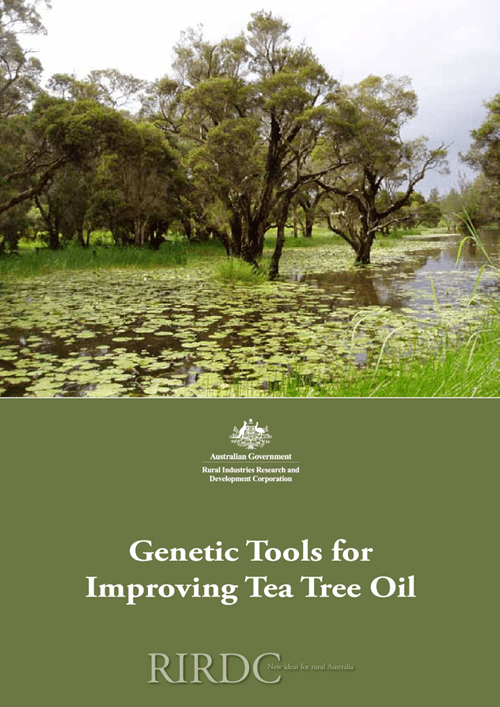Virucidal effects of tea tree oil
Consumer demand for natural products such as Australian tea tree oil (Melaleuca alternifolia) is driving researchers to investigate their efficacy against respiratory viruses in humans...
 TEA TREE OIL
TEA TREE OIL 
65 pages
Published: 20 Oct 2010
Author(s): A. Keszei, H. Webb, C. Kulheim, W. Foley
Download report PDF
DownloadPurchase a hard copy - AUD $45.00
Plant essential oils were Australia’s first export and remain a significant contributor to the economy particularly in rural and regional areas. Maintaining competitive advantages in the face of low labour costs elsewhere is a particular challenge and Australian producers need to have access to break-through technology that enables them to continue to maintain higher prices due a high quality product. This project has applied new advances in the understanding of the biosynthesis of terpenes, the major constituents of essential oils, in particular those from Tea Tree (Melaleuca alternifolia).
For the first time, this work has identified the genes that produce terpenes in Melaleuca alternifolia that provide a direct diagnostic test to ensure that only the commercially valuable chemotype is planted. This will enable the Tea Tree Industry to optimise oil profiles at a much-reduced cost for breeding programmes. Secondly the work has identified the genes and gene variants that are associated with higher yields of essential oils in different trees. This is a significant achievement and makes possible direct selection of high yielding plants without the need for extensive traditional breeding programmes. In addition, the work means that Australia can control the genetic resources for an important industry
This RIRDC report is aimed primarily at breeders and individual producers in the tea tree industry. It emphasises to the industry that its profitability is dependent on small random changes in a few genes, and so conserving the genetic variability in the species is vital.